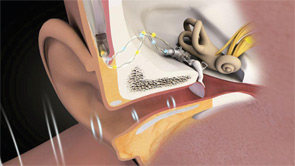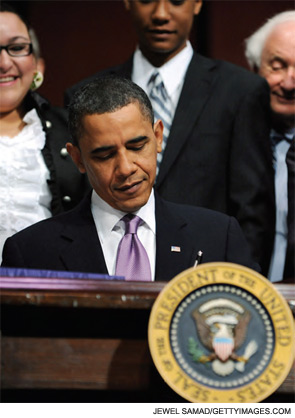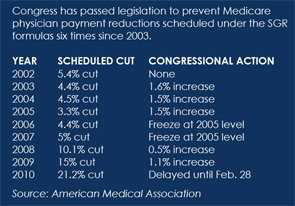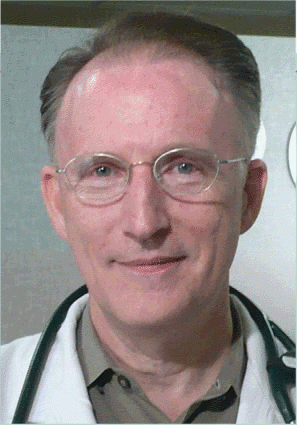There is a Chinese proverb that is both a blessing and a curse. The blessing is, “May you live in interesting times,” and the curse is, “May you live in interesting times.” All of us would like things to stabilize into a constant, comfortable and predictable environment for us to live our lives, raise our families and care for our patients. We are entering the most complex and challenging period that medicine has experienced since the 1960s when Medicare was introduced. From now on, everything we have come to know and are comfortable with in our professional lives will change.

Middle Ear Implants Offer Potential: New breed of devices may stimulate compliance, experts say
For decades, otolaryngologists have been frustrated by the refusal of some patients with hearing loss to use hearing aids. Statistics on noncompliance vary, but there is general agreement that only about 20 percent to 25 percent of Americans with treatable hearing loss use hearing aids. The problem seems to be more acute for people with mild hearing loss: A consumer survey conducted by the nonprofit Better Hearing Institute in 2009 found that fewer than 10 percent of people with mild hearing loss use amplification and that even among people with moderate-to-severe hearing loss, only four in 10 use amplification.
Socioeconomic Disparity Seen in Families of Hearing-Impaired Children
What are the disparities in socioeconomic status and health care utilization in hearing-impaired children? Background: Multiple barriers potentially contribute to health disparities experienced by children with hearing loss. These can include […]

The Opt-Outs: Otolaryngologists extol the benefits of third-party independence
When describing to the curious the benefits of opting out of both Medicare and private insurance, Gerard J. Gianoli, MD, president of The Ear and Balance Institute in Baton Rouge, La., often recalls one particular example: During one 90-day global period about five years ago, after an eight-hour resection of a skull-based glomus tumor, post-operative ICU care and several days of inpatient care and the usual post-operative office visits, he received a total reimbursement of $500.

Health Reform to Insure 32 Million: Are you ready for them?
The new health system reform law is expected to reduce the number of uninsured Americans by 32 million people, and that means more paying patients for physician practices. Many doctors, however, worry that the law’s lack of Medicare payment reform and medical malpractice caps will exacerbate a looming physician shortage. This raises questions about how successful the law will be in increasing health care access.

A New Game Plan: Otolaryngologists and consultants devise solutions to ride out the recession
Otolaryngologists understand that even their most loyal patients, with finances ravaged by the lingering economic recession, may postpone or forego endoscopic sinus surgery, tonsillectomy or a chemical facial peel in favor of paying the mortgage.

Medicare Meltdown: Congress Seeks Payment Formula Fix
Presdient Obama signed legislationlast month to temporarily prevent a 12.2 percent Medicare payment cut scheduled to take effect Jan. 1. The freeze lasts until Feb. 28, during which Congress is expected to come up with a permanent solution to what some consider a flawed payment system.

Putting the Physician-Patient Relationship First
The otolaryngologists and pediatric surgeons who watched President Obama’s July 22 press conference must have been astonished to hear themselves vilified by the Health Care Reformer-in-Chief.

Recognizing Diversity is Essential for Delivering Quality, Affordable Health Care
Within the ongoing discussion on the need to reform the delivery of health care in the United States to better balance issues of cost, quality, and accessibility is an underlying issue that, if not sufficiently recognized, will undermine all efforts at reform.

Otolaryngologists-Head and Neck Surgeons Urged: Be Part of the Solution in Health Care Reform
With the crisis in the financial markets reaching what many call historic proportions, another crisis long brewing is threatening to surface that, if some experts are correct, could have even greater consequences than the financial crisis for the US health care system.